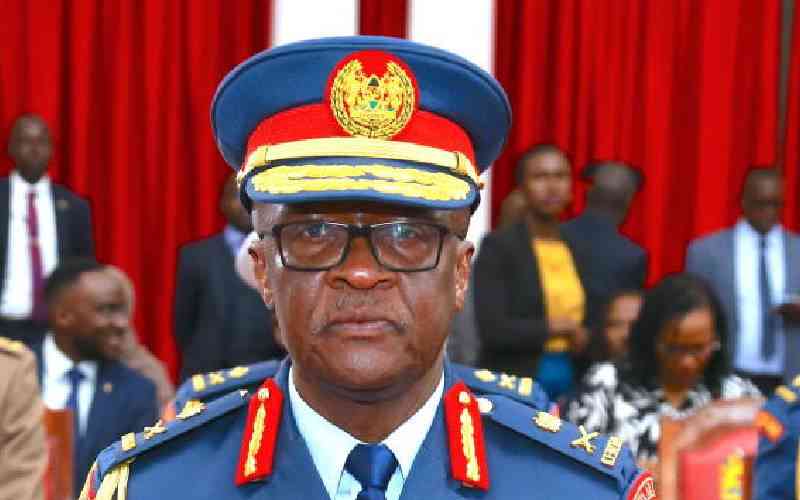-Editorial
Inspector General of Police David Kimaiyo is continuing a long cherished tradition in the National Police Service of reshuffling senior police officers whenever there is an outcry over rising insecurity and someone seen as a VIP is a victim.
Mathew Iteere, Kimaiyo’s predecessor before the Constitution of Kenya 2010 took root, carried out so many reshuffles it became difficult to follow who was last where and their new posting.
This tradition is superfluous, repugnant to the intelligence of Kenyans and totally ineffective when it comes to dealing with the root cause of the rot that is killing professionalism and dedication to duty within the ranks of the police. A reshuffle is only effective if it included firing people who are not performing and replacing them with colleagues who have excelled and proven themselves effective in dealing with chronic problems.
Also, why reward mediocrity by transferring it elsewhere to become someone else’s’ problem? On March 15, 2011, 125 senior officers were affected when former Police Commissioner Iteere announced a reshuffle in the force. It failed to change much and insecurity continued.
On February 27 this year, 16 senior police officers including Coast Regional Police Co-ordinator Aggrey Adoli were moved in changes made by the National Police Service Commission. Mombasa immediately began suffering severe traffic control issues that are still continuing today. In October last year, after the Westgate terror attack, Kimaiyo shuffled 20 senior officers operating at the Directorate of Criminal Investigations. Crime continued unabated and the changes were largely interpreted as a move to consolidate his power base.
Yesterday, despite no clear evidence that shuffling officers has helped reduce the prevalence of crime, Kimaiyo was at it again, moving more than a half of the police station commanders in Nairobi to stations outside the city. A day earlier, Deputy President William Ruto’s deputy spokesman was car jacked, held at gunpoint and driven around the city and its environs for three hours. This makes Kimaiyo’s move look like a knee-jerk reaction even though it might have been in the pipeline all along.
The problems facing the police force are myriad but some have been dealt with. Among them is basic equipment like vehicles and guns. Those that remain include poor housing a promotion system that has been tainted by allegations of ethnicity and corruption and a yawning gap in the salaries of top officers and those below them.
Unless these issues are dealt with, corruption and low morale will continue to undermine the efficiency of the National Police Service.
 The Standard Group Plc is a
multi-media organization with investments in media platforms spanning newspaper
print operations, television, radio broadcasting, digital and online services. The
Standard Group is recognized as a leading multi-media house in Kenya with a key
influence in matters of national and international interest.
The Standard Group Plc is a
multi-media organization with investments in media platforms spanning newspaper
print operations, television, radio broadcasting, digital and online services. The
Standard Group is recognized as a leading multi-media house in Kenya with a key
influence in matters of national and international interest.
 The Standard Group Plc is a
multi-media organization with investments in media platforms spanning newspaper
print operations, television, radio broadcasting, digital and online services. The
Standard Group is recognized as a leading multi-media house in Kenya with a key
influence in matters of national and international interest.
The Standard Group Plc is a
multi-media organization with investments in media platforms spanning newspaper
print operations, television, radio broadcasting, digital and online services. The
Standard Group is recognized as a leading multi-media house in Kenya with a key
influence in matters of national and international interest.






